Vision
Imbuing
Confidence, Creativity, Character
for a Competent India...
Imbuing
Confidence, Creativity, Character
for a Competent India...
To establish a one-of-its-kind Public School based on Indian Culture and Gurukul Ethos, for Girls and Boys from all over the world, to realize their physical, intellectual, social, psychic and spiritual potential for their balanced all-round development.
Integrity Discipline Effectiveness
Team Work Empathy
Open Mindedness
Spiritually Inspired By
Love All, Serve All Help Ever, Hurt Never
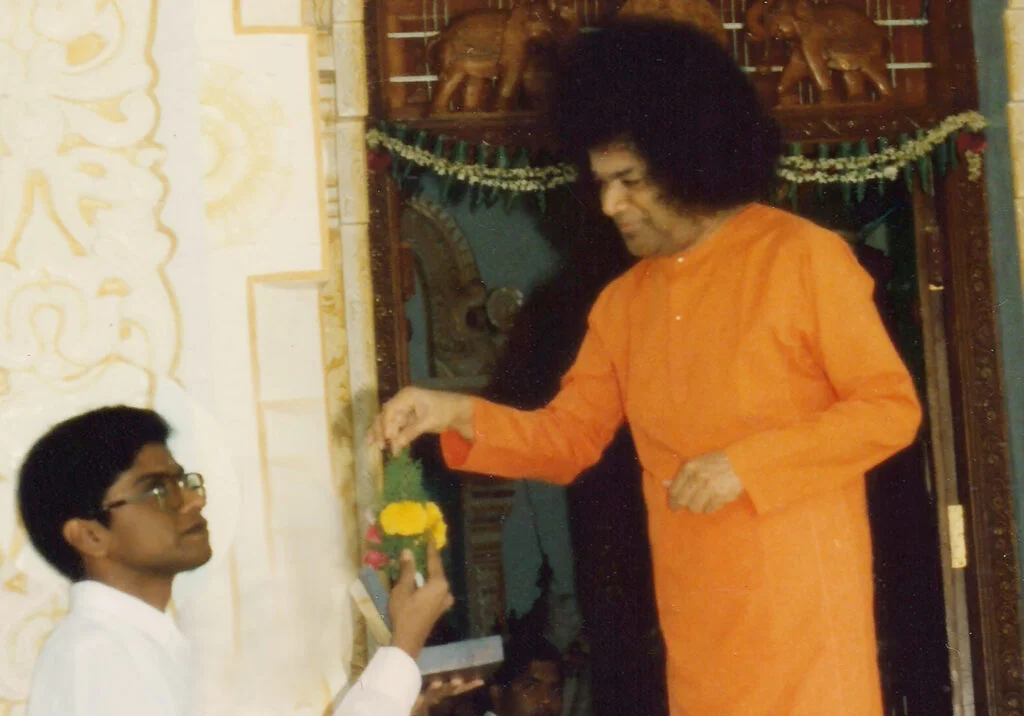
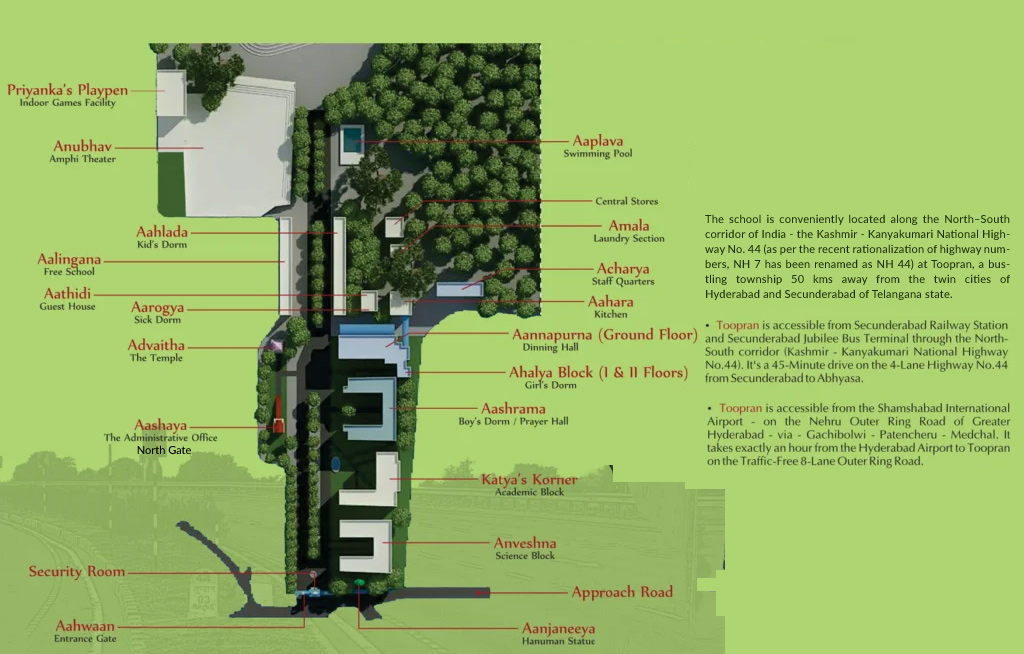

Abhyasa (Estd. in 1996) is a boutique residential school with classes from Grade Five to Grade Twelve, affiliated to The Council for Indian School Certificate Examinations (I.C.S.E. & I.S.C.) New Delhi. With Girls & Boys from all over India & Overseas, the school admits only 300 fully residential students to ensure personalised attention for the all round development of every pupil! Strategically located on the Indian National Highway 44 - connecting Kashmir & Kanyakumari & the Telangana Regional Ring Road at Toopran town, which is a 45 minute-drive from the hustle & bustle of Hyderabad City, on a 15-acre - Clean & Green Campus, with a Curriculum that blends the best practices of the Indian Gurukul Culture & International Education Standards, at an affordable fee...
Leadership
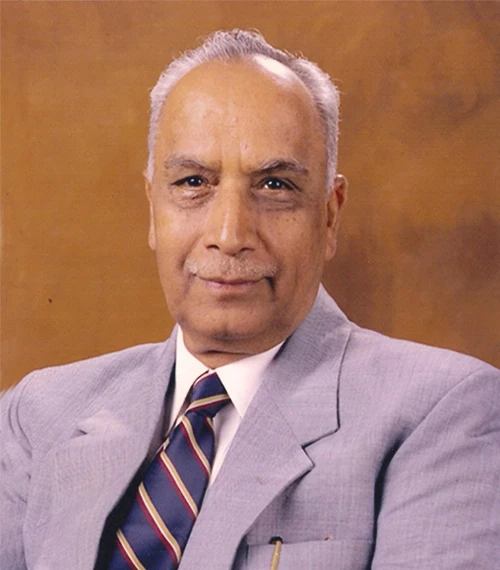
Retd. Director General of Police
Government of Andhra Pradesh
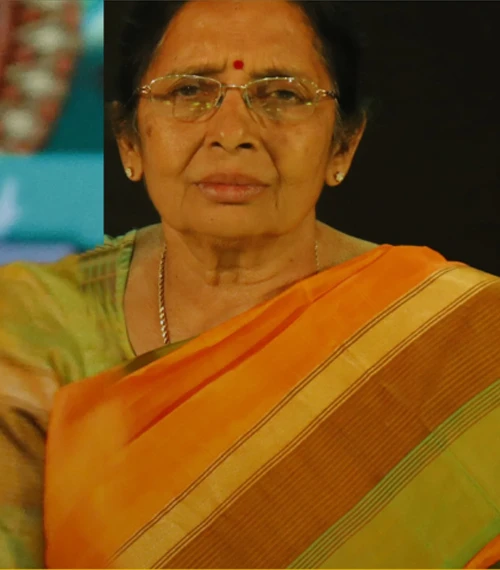
Retd. Headmistress,
The Hyderabad Public School
Begumpet

Alumnus: The Hyderabad Public School, Begumpet, Hyderabad
Alumnus: Sri Sathya Sai Institute of Higher Learning, Prasanthi Nilayam

Mr. Rangadass Kalleetla
Mrs. Padmavati Kalleetla
Dr. Vasudev Rangadass
Mr. Vinaayaka Kalleetla
Mr. Raghuram Kalleetla
Secunderabad
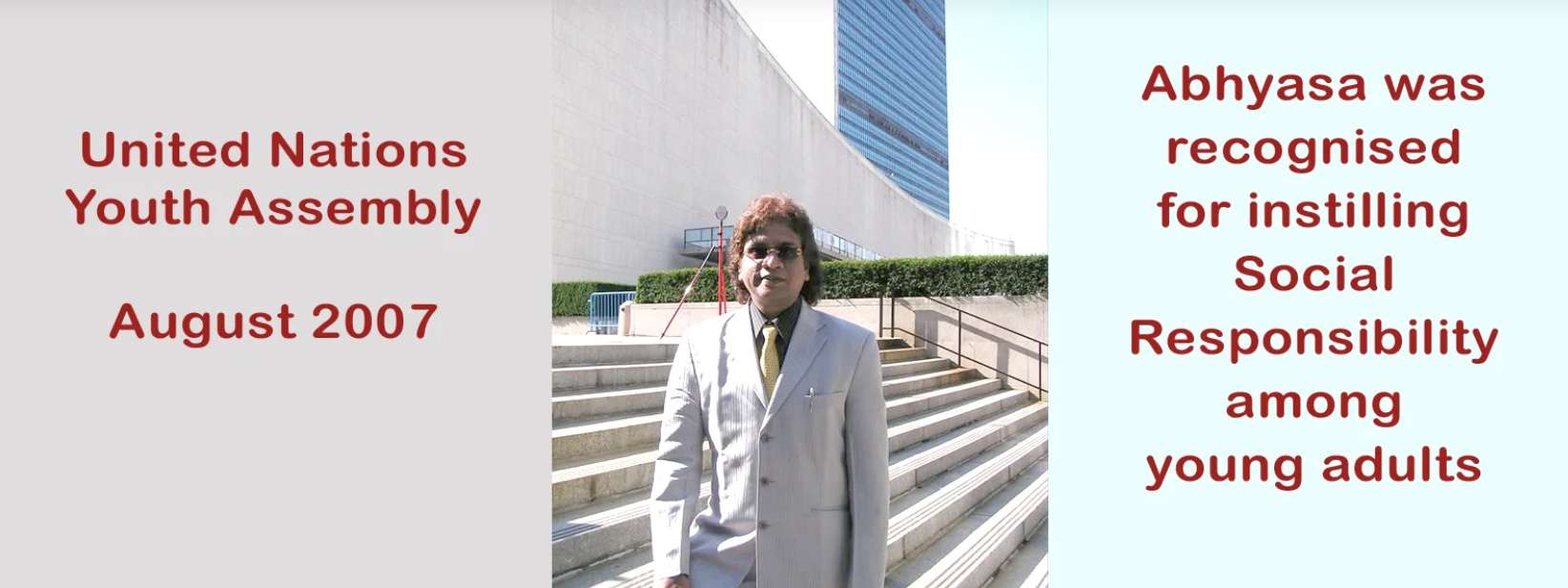
United Nations Recognition - Social Responsibility in Education

Asia One - Asia’s Greatest Brand & Leader Award (2017)

Education World Award - No.1 Co-Ed Boarding School, Telangana (2017-18)

Times Education Excellence Award - Best Residential School, Hyderabad (2018-19)

Education World Award - No.1 Co-Ed Boarding School, Telangana (2021-22)

Times Education Excellence Award - Best Residential School, Hyderabad (2022)
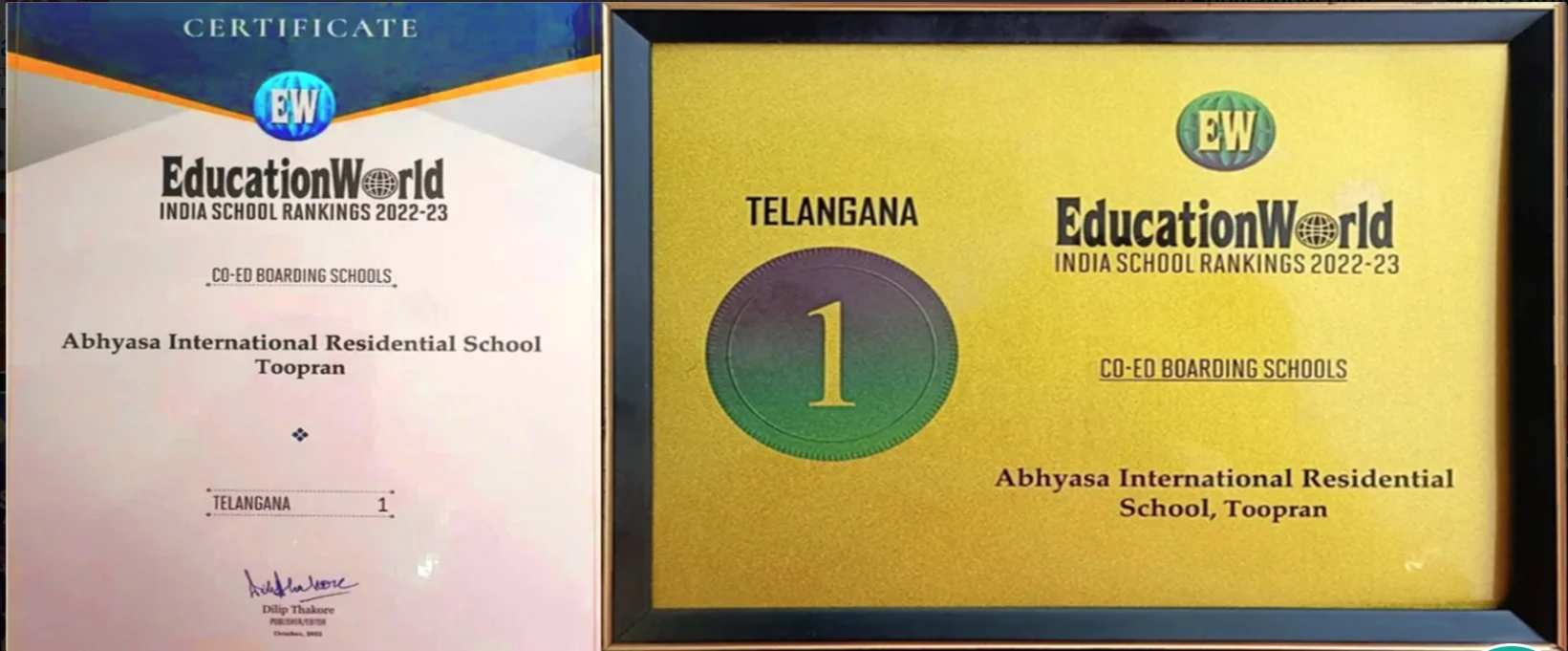
Education World Award - No.1 Co-Ed Boarding School, Telangana (2022-23)
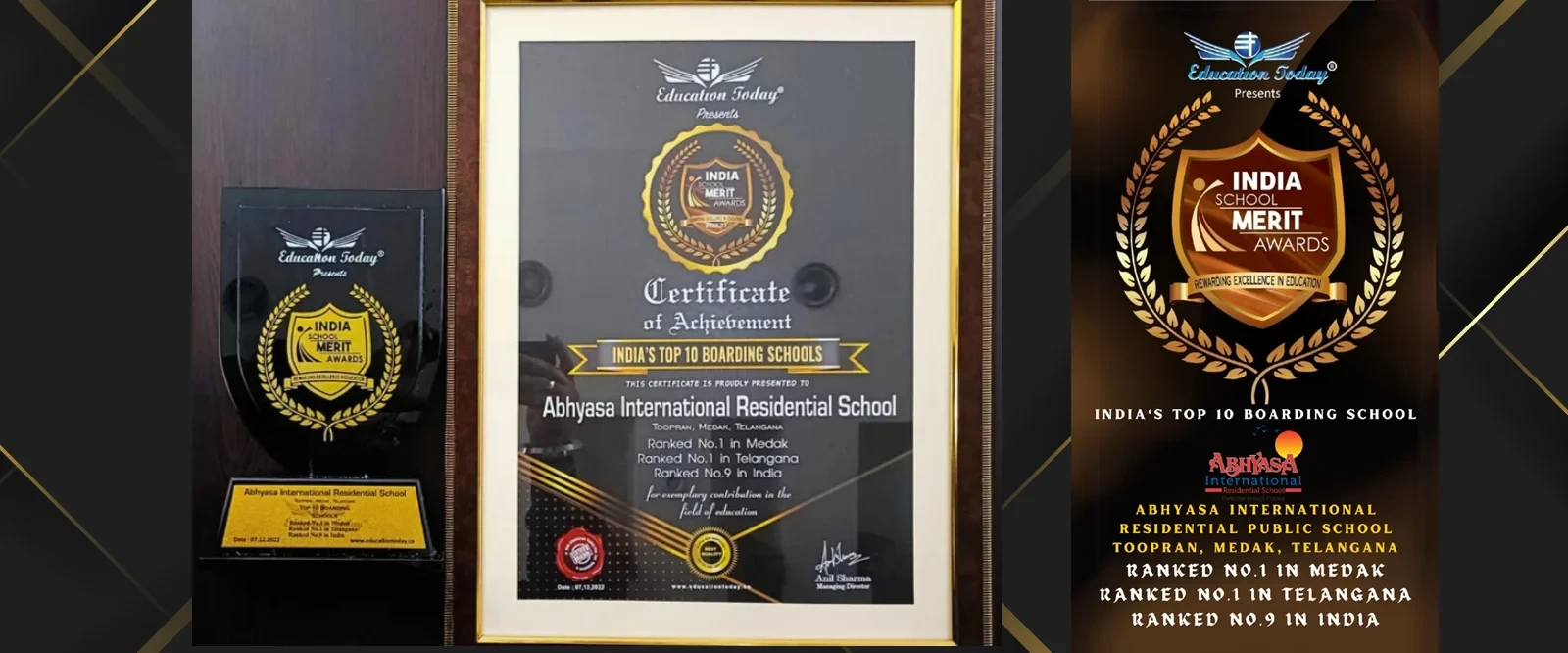
Education Today - India School Merit Award (Top 10 Boarding Schools, Hyderabad) 2022-23

Education World Award - No.1 Co-Ed Boarding School, Telangana (2023-24)

Education Times - Education Leaders Award (2023)

Education Today - India School Merit Award (Top 10 Boarding Schools, Hyderabad) 2023-24

Times Education Excellence Award - Best Residential School, Hyderabad (2024)
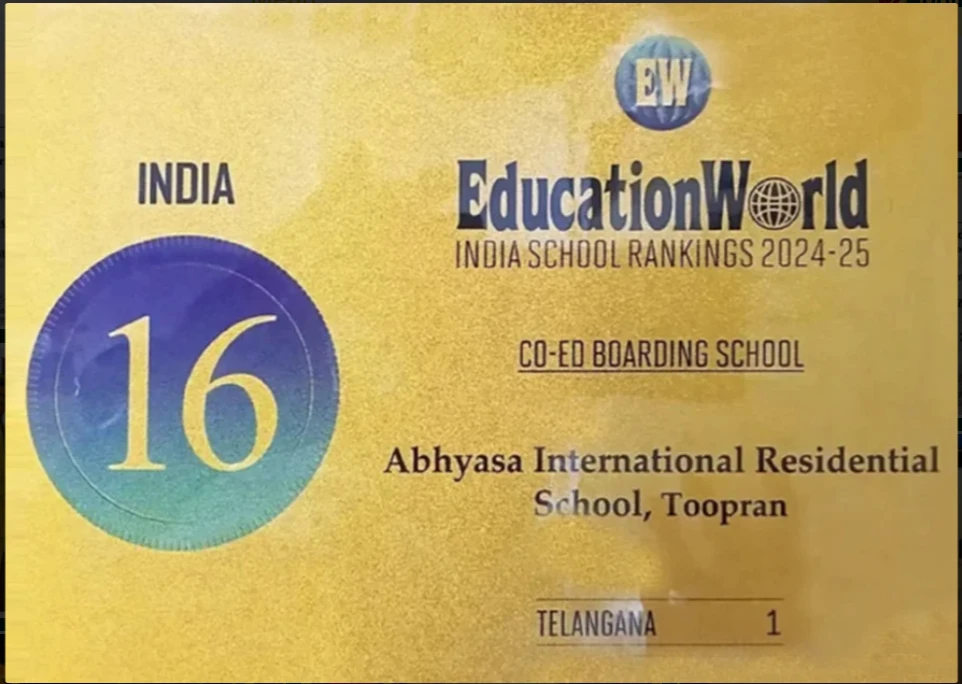
Times of India Leadership Award - Excellence in Holistic Education (2024)
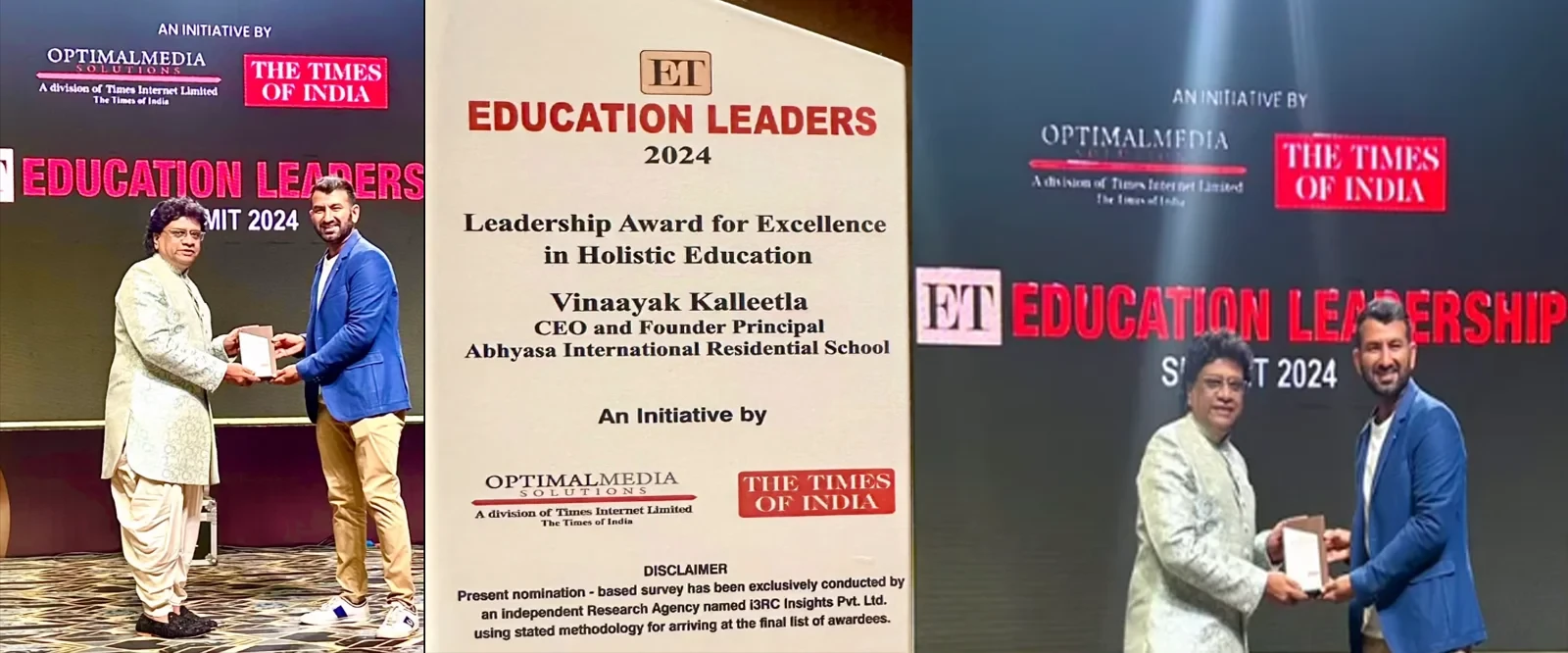
Education World Award - No.1 Co-Ed Boarding School, Telangana (2024-25)
Abhyasa
A unique child-centred curriculum offers a wide range of activities that discovers an individual’s talents and moulds a genius out of every child! Abhyasa is a melting pot of Science and Spirituality, Commerce and Common-sense, Creativity and Conformity, Learning and Unlearning too….that prepares an individual not only for a living but also for life! "Over All Personality Development"
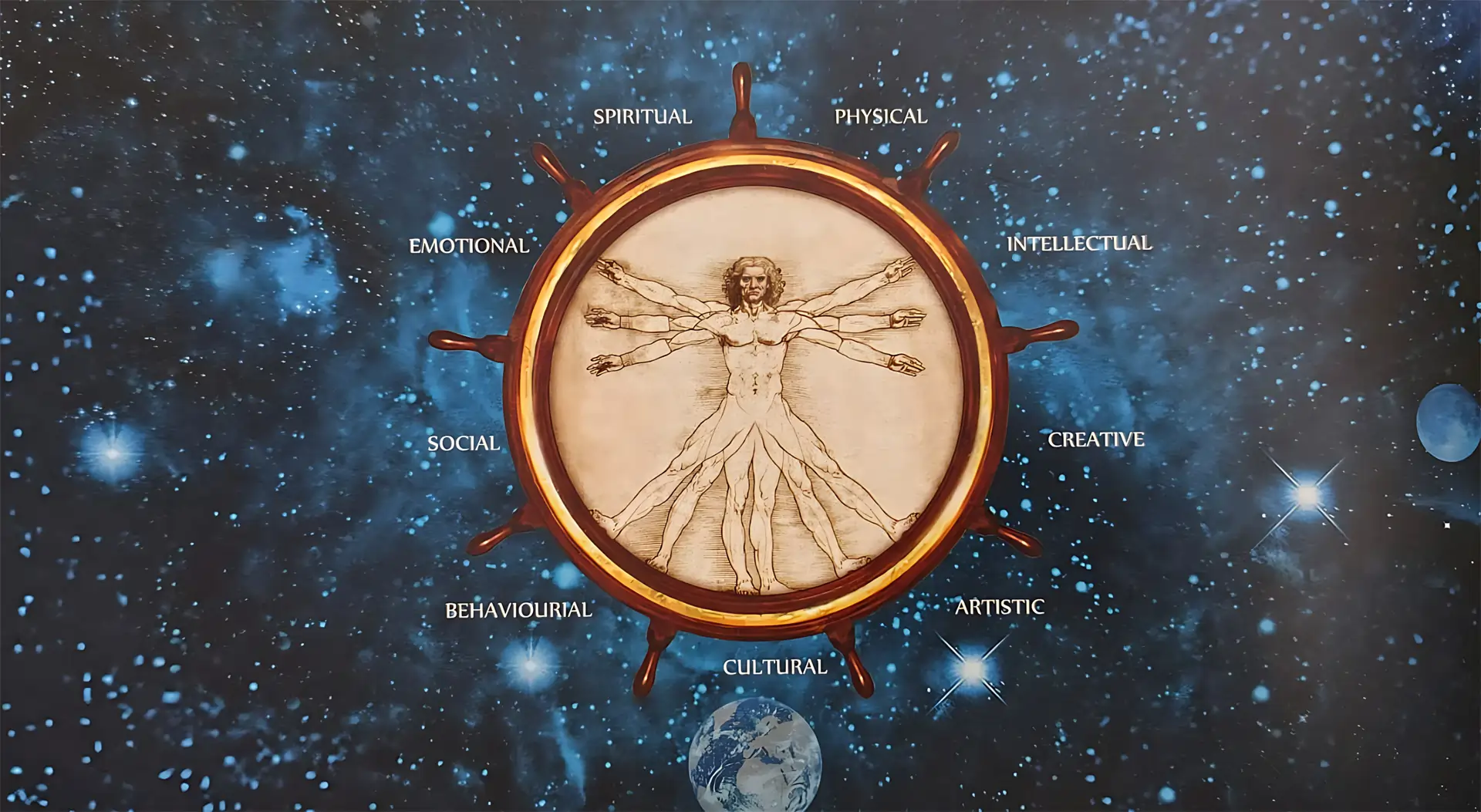 Read More →
Read More →
Develop students’ intellectual depth by encouraging inquiry into events and existence. Guide them to analyse the how and why of occurrences, correlate facts, integrate information, and synthesise knowledge, skills, and values into meaningful applications. Motivate learners to critically question existing beliefs and identify new problems that require creative and innovative solutions.
Enhance the physical quotient of students by developing fitness, strength, health, and dexterity, while preparing them for growth and survival in a competitive world. Foster agility, endurance, and efficiency to support overall well-being and performance.
Enable students to experience the beauty of colours, the melody of sound, and the rhythm and symmetry of form. Through exposure to various art forms, nurture aesthetic sensitivity, creative expression, emotional depth through drama, and grace in movement and performance.
Nurture students to become behaviorally refined and morally responsible by fostering self-discipline, self-confidence, and self-esteem. Emphasise appropriate etiquette, interpersonal skills, and the ability to handle situations with maturity and sensitivity. Provide training in leadership and life skills to prepare students for responsible citizenship and a successful career path.
Enhance students by making them behaviorally refined and morally forthright through the cultivation of self-discipline, self-confidence, and self-esteem, along with appropriate etiquette and essential life skills. Inculcate interpersonal skills to help them choose appropriate responses, such as empathy versus endurance, poise versus humour, and rationale versus devotion.
Alumni
Alumni proudly reflect on their journey, crediting the school for shaping their character, confidence, and lifelong success.


Parents are thrilled with the positive impact on their child's growth and confidence!

Dr. Samuel Deendayal is a well-known ENT surgeon at The Yashoda Hospitals, Hyderabad, Andhra Pradesh and the Founder of Alankritha Resorts - a 5 star resort on the outskirts of Hyderabad-Winner of several Tourism awards. He is the proud father of Arjun Deendayal (Student at Abhyasa from 1999-2004).
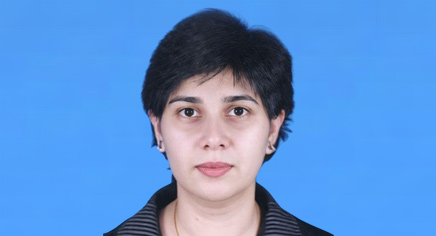
Ms. Qaisra Nazeen - mother of Sahil Chahal (Student of Abhyasa from 2005-2011). She was born in Sindh state of Pakistan and later moved to live in Kuala Lumpur, Malaysia as an Education Consultant. She currently works as a teacher near Cambridge, on the outskirts of London, United Kingdom.

Father of Raghav Sachdeva (Student of Abhyasa 2008-2012) hails from Indore, Madhya Pradesh. Mr. Sachdeva is a reputed tax consultant and lawyer, who holds several positions in the Sri Sathya Sai Seva organizations in the capacity of a trustee and an educationalist at Sri Sathya Sai Vidya Vahini Trust.